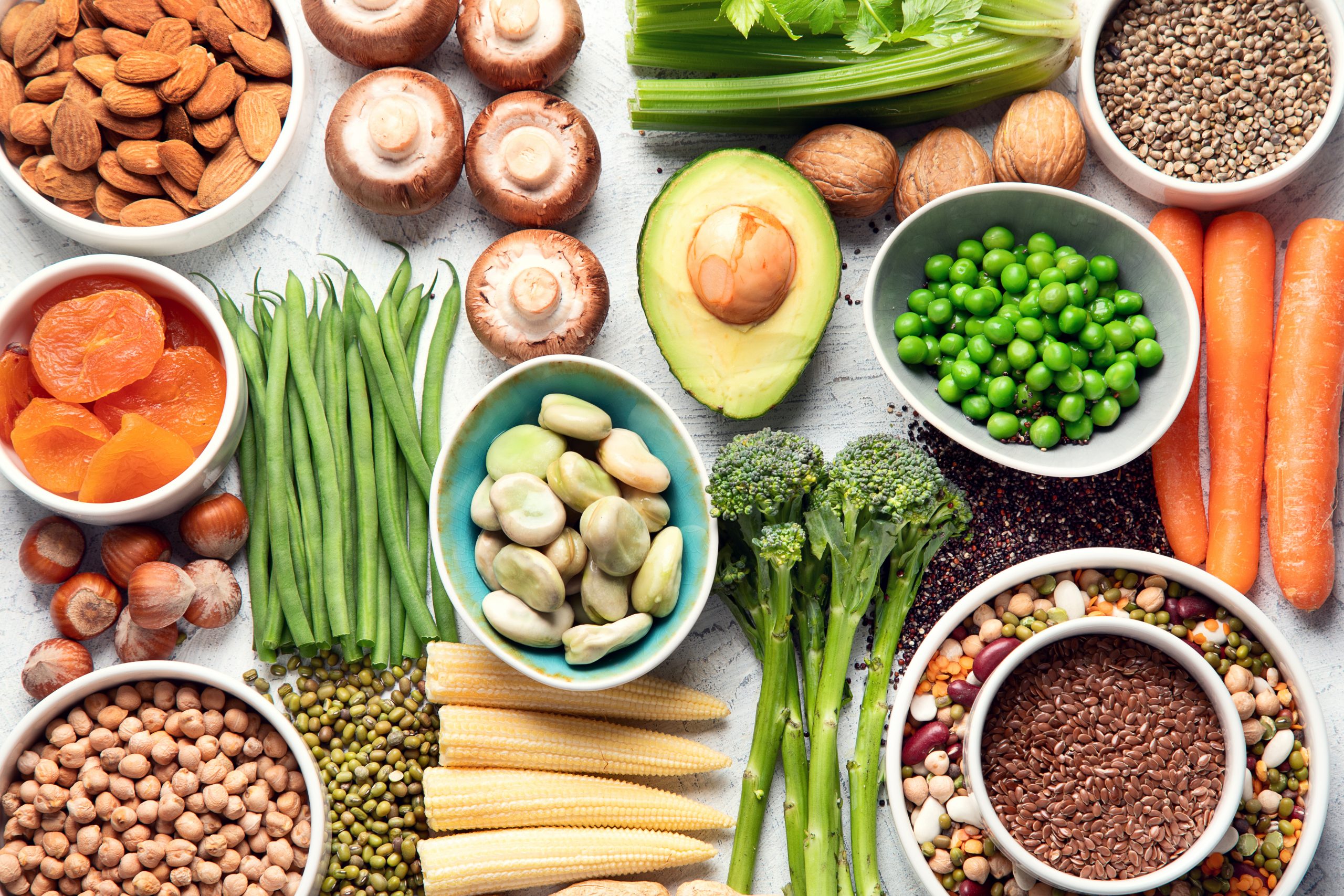Delve into the world of lacto vegetarian foods, a dietary approach that embraces plant-based nourishment while incorporating dairy products. Discover its principles, health benefits, ethical considerations, and a step-by-step guide to transition seamlessly.
Lacto-Vegetarian Dietary Guidelines
A lacto-vegetarian diet is a plant-based diet that includes dairy products but excludes meat, poultry, fish, eggs, and other animal-derived foods.
Discover how why do vegans eat fish has transformed methods in RELATED FIELD.
Lacto-vegetarians can obtain all the nutrients they need from plant-based foods and dairy products. However, it is important to ensure that they are getting enough protein, iron, calcium, and vitamin B12.
Permitted Food Groups, Lacto vegetarian foods
- Fruits
- Vegetables
- Whole grains
- Legumes
- Nuts
- Seeds
- Dairy products
Restricted Food Groups
- Meat
- Poultry
- Fish
- Eggs
- Other animal-derived foods
Nutrient Balance and Supplementation
Lacto-vegetarians should make sure they are getting enough of the following nutrients:
- Protein
- Iron
- Calcium
- Vitamin B12
Lacto-vegetarians may need to supplement with vitamin B12, as this nutrient is not found in plant-based foods.
Health Benefits of Lacto-Vegetarianism: Lacto Vegetarian Foods
Adopting a lacto-vegetarian diet offers numerous health benefits, primarily due to the inclusion of dairy products while excluding meat and eggs. Research suggests that lacto-vegetarians experience a reduced risk of developing chronic diseases compared to non-vegetarians.
Discover the crucial elements that make polo pescatarian the top choice.
Cardiovascular Health
- Lacto-vegetarians have lower levels of LDL cholesterol, the “bad” cholesterol, which contributes to plaque buildup in arteries, reducing the risk of heart disease and stroke.
- Plant-based diets are rich in fiber, which helps lower blood pressure and improves blood sugar control, further protecting heart health.
Cancer Prevention
- Fruits, vegetables, and whole grains consumed in a lacto-vegetarian diet are excellent sources of antioxidants and phytochemicals, which have anti-inflammatory and anti-cancer properties.
- Studies have shown a lower risk of certain types of cancer, such as colon, prostate, and breast cancer, among lacto-vegetarians.
Type 2 Diabetes
- The high fiber content in plant-based foods helps regulate blood sugar levels, reducing the risk of developing type 2 diabetes.
- Lacto-vegetarians also tend to have lower body mass indexes (BMIs), which is a significant risk factor for diabetes.
Weight Management
- Plant-based foods are generally lower in calories and fat than animal products, making it easier for lacto-vegetarians to maintain a healthy weight.
- The fiber in fruits, vegetables, and whole grains promotes satiety, helping individuals feel fuller for longer periods.
Popular Lacto-Vegetarian Food Sources
A lacto-vegetarian diet emphasizes plant-based foods while incorporating dairy products. This diverse range of food sources offers a balanced nutritional profile, including essential nutrients like protein, calcium, and iron.
Dairy Products
Dairy products, such as milk, yogurt, and cheese, are excellent sources of calcium and protein. They also provide essential vitamins and minerals like vitamin D, riboflavin, and potassium.
Investigate the pros of accepting health benefits of being a pescatarian in your business strategies.
- Milk:1 cup (240 ml) provides approximately 8 grams of protein and 306 mg of calcium.
- Yogurt:1 cup (240 ml) of plain yogurt contains around 12 grams of protein and 450 mg of calcium.
- Cheese:1 ounce (28 grams) of cheddar cheese offers about 7 grams of protein and 200 mg of calcium.
Legumes
Legumes, including beans, lentils, and peas, are rich in protein, fiber, and iron. They also provide complex carbohydrates and other essential nutrients.
- Beans:1 cup (170 grams) of cooked black beans contains approximately 15 grams of protein and 6 mg of iron.
- Lentils:1 cup (198 grams) of cooked lentils offers around 18 grams of protein and 6 mg of iron.
- Peas:1 cup (160 grams) of cooked green peas provides approximately 8 grams of protein and 3 mg of iron.
Nuts and Seeds
Nuts and seeds are a concentrated source of healthy fats, protein, and fiber. They also provide essential vitamins and minerals like vitamin E, magnesium, and zinc.
- Almonds:1 ounce (28 grams) of almonds contains around 6 grams of protein and 76 mg of calcium.
- Chia seeds:1 tablespoon (14 grams) of chia seeds offers approximately 4 grams of protein and 177 mg of calcium.
- Sunflower seeds:1 ounce (28 grams) of sunflower seeds provides around 6 grams of protein and 113 mg of magnesium.
Whole Grains
Whole grains, such as brown rice, quinoa, and oats, provide complex carbohydrates, fiber, and essential vitamins and minerals. They are also a good source of protein, especially when combined with legumes.
- Brown rice:1 cup (195 grams) of cooked brown rice contains approximately 5 grams of protein and 1.5 mg of iron.
- Quinoa:1 cup (185 grams) of cooked quinoa offers around 8 grams of protein and 3 mg of iron.
- Oats:1 cup (234 grams) of cooked oatmeal provides approximately 6 grams of protein and 2 mg of iron.
Fruits and Vegetables
Fruits and vegetables are essential for a balanced diet, providing a wide range of vitamins, minerals, and antioxidants. While not as rich in protein as other lacto-vegetarian food sources, they contribute to overall nutrient intake.
- Spinach:1 cup (30 grams) of raw spinach contains approximately 1 gram of protein and 25 mg of calcium.
- Broccoli:1 cup (91 grams) of cooked broccoli offers around 3 grams of protein and 100 mg of calcium.
- Berries:1 cup (148 grams) of mixed berries provides approximately 3 grams of protein and 120 mg of vitamin C.
Ethical Considerations in Lacto-Vegetarianism
Lacto-vegetarianism raises ethical concerns surrounding the consumption of dairy products, which involve the exploitation of animals and environmental impact.
Animal Welfare
Dairy production often involves practices that compromise animal welfare. Cows are artificially inseminated to maintain milk production, leading to pregnancies and births that are primarily for human consumption. Calves are separated from their mothers shortly after birth, which can cause distress and health issues.
Get the entire information you require about what foods do vegetarians not eat on this page.
Environmental Sustainability
Dairy farming contributes to greenhouse gas emissions, deforestation, and water pollution. The production of milk and other dairy products requires significant amounts of land, water, and feed, putting a strain on natural resources.
Balanced Perspective
It’s important to note that ethical concerns vary among individuals and that some lacto-vegetarians believe that responsible dairy farming practices can mitigate animal welfare and environmental impacts. However, it remains a complex issue with ethical implications that should be considered.
Transitioning to a Lacto-Vegetarian Diet
Embracing a lacto-vegetarian diet involves a gradual transition that prioritizes health and well-being. By following a step-by-step guide and addressing common challenges, individuals can successfully implement this dietary shift.
Step-by-Step Transition Guide
- Start by reducing meat consumption:Gradually decrease the frequency and portion sizes of meat-based meals.
- Introduce plant-based proteins:Incorporate beans, lentils, tofu, and tempeh into your diet to compensate for reduced meat intake.
- Explore dairy products:Add yogurt, cheese, and milk to your meals to ensure adequate calcium and protein.
- Experiment with vegetarian recipes:Cook new dishes using a variety of vegetables, fruits, and whole grains.
- Seek professional guidance:Consult a registered dietitian or healthcare professional for personalized advice and support.
Common Challenges and Tips
- Nutritional deficiencies:Ensure adequate intake of vitamin B12, iron, and omega-3 fatty acids through fortified foods or supplements.
- Social situations:Communicate your dietary preferences clearly to avoid awkward situations or misunderstandings.
- Dining out:Research restaurants and ask about vegetarian options or request modifications to accommodate your needs.
- Emotional eating:Address emotional triggers that may lead to overeating or unhealthy food choices.
- Convenience:Plan meals ahead of time and keep healthy snacks on hand to avoid unhealthy choices when pressed for time.
Sample Meal Plan Template
A lacto-vegetarian meal plan should include a variety of nutrient-rich foods from all food groups:
| Meal | Food Options |
|---|---|
| Breakfast | – Oatmeal with berries and nuts
|
| Lunch | – Salad with grilled tofu, quinoa, and vegetables
|
| Dinner | – Pasta with marinara sauce and vegetables
|
| Snacks | – Fruit (apples, bananas, berries)
|
Last Recap
Embracing a lacto-vegetarian diet offers a balanced and nutritious lifestyle that aligns with both health and ethical values. Whether seeking improved well-being, reduced environmental impact, or compassionate consumption, this dietary choice empowers individuals to make informed decisions that nourish their bodies and the planet.
Question & Answer Hub
What are the key principles of a lacto-vegetarian diet?
A lacto-vegetarian diet excludes meat, poultry, fish, and eggs but allows dairy products like milk, cheese, and yogurt.
What are the health benefits of a lacto-vegetarian diet?
Lacto-vegetarianism has been linked to reduced risks of heart disease, certain cancers, and type 2 diabetes due to its high intake of fruits, vegetables, and whole grains.
Are there any ethical concerns with consuming dairy products in a lacto-vegetarian diet?
Some individuals raise concerns about animal welfare and environmental sustainability in dairy production, which should be considered when making dietary choices.


